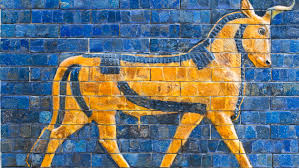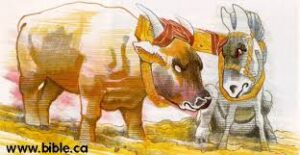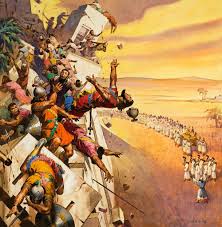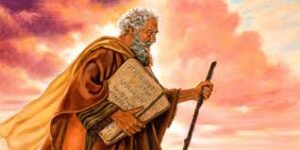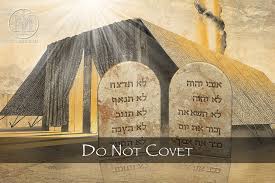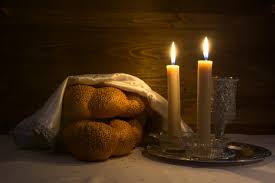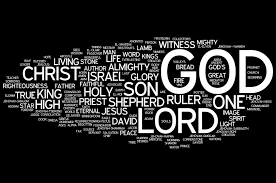Cg – Do not Forget ADONAI 8: 11-20
Do not Forget ADONAI
8: 11-20
Do not forget ADONAI DIG: How is forgetfulness more than amnesia? How would ADONAI treat the idolatry of His own people? What are the three steps toward ruin? How was Isra’el’s “forgetting” deliberate? How would the Promised Land itself be a source of testing for the Israelites? When did the manna stop falling from heaven? How were the Israelites to remember God? Why was wealth given to the Israelites? What did Ha’Shem say would happen if the Israelites ended up forgetting ADONAI?
REFLECT: How might the warning here apply to you? What are the things which cause you to forget God? What will you do to make sure these things do not come between you and God? How are producing wealth and accumulating wealth different? What does this tell you about your capacity to produce wealth? Is it harder for you to maintain a proper relationship with God in prosperity or hardship? How are you doing in that regard? How should one deal with a sense of satisfaction that lacks humility? Who do you know that you can help with this?
Looking to Isra’el’s near future, Moshe warns the people against feeling proud and self-sufficient as a result of the prosperity and abundance they will experience in the Promised Land.

The danger of forgetting God (8:11-16): Take care that you do not forget ADONAI your God by not keeping His mitzvot, ordinances and statutes that I am commanding you today (8:11). Forgetfulness is not merely a matter of amnesia. To forget ADONAI means two things. First, it means forgetting all the history of what God had done for them, both the lessons of the hard times and the blessings of the good times (to see link click Cf – The Danger of Prosperity). The facts may still be remembered, in a literal sense, but they have ceased being a part of a living memory of the reality of YHVH, who no longer seems to be a living and real presence. Hence, “forgetting” is felt as deliberate rejection, not just a mental lapse. So much of the pain that Ha’Shem expresses through the prophets is the result of this kind of “forgetting.”
Moses delineates the setting in which this “forgetting” might take place. Otherwise, when you have eaten and are full and have built good houses and lived in them, and when your herds and flocks multiply, and silver and gold multiplies for you and all that is yours multiplies, then your heart might become haughty and you will forget ADONAI your God. He brought you out from the land of Egypt, from the house of slavery (8:12-14). The anticipation of the good Land promised by YHVH had been a source of strength to the Israelites during their time of testing in the wilderness; following the conquest, however, the good Land itself could become a source of testing.245
He led you through the great and terrible wilderness – fiery serpents and scorpions, and thirsty ground where there was no water. He brought forth water for you from the flinty rock (8:15). He fed you in the wilderness with manna that your fathers did not know, in order to afflict you and test you, to do you good in the end (8:16). Inside the Land, manna would not fall. Isra’el would need to perform eleven mitzvot just to make bread – sowing, plowing, reaping, binding sheaves, threshing, winnowing, selecting, grinding, sifting, kneading, and baking (Shabbat 74b).
The danger of presumption (8:17-18): For any member of the covenant community, it would be gross presumption to say in your heart, “My power and the might of my hand has made me this wealth” (Deuteronomy 8:17; also see Psalm 127:1; Proverbs 30:9; Hosea 13:6). Yet precisely because the purpose of God is achieved through the cooperation of mankind, there was, and is, the inevitable temptation for us to boast of our achievements. Do not forget ADONAI! How easy it would be for Isra’el to become proud, to forget how helpless they were before the LORD rescued them, and to think that their success was due to their own strength and wisdom – and that they deserved it!246
God grants power and ability to His people for a special purpose: Rather you are to remember ADONAI your God, for it is He who gives you power to make wealth, in order to establish His covenant that He swore to your fathers – as it is this day, when the covenant was being renewed on the plains of Mo’ab (8:18). Such dependence on YHVH is humbling. Mankind does not live by bread alone but by every word that comes from the mouth of ADONAI (8:3b). The people could avoid pride in their power to make wealth if they would constantly remember ADONAI and the lesson of the wilderness: all of life is a gift from God and nothing is possible apart from Him.247
This lesson for Isra’el has wide implications for us today. Wealth and prosperity can never be regarded as a natural right. People with this ability to make wealth are good at building a business, making deals or sales and reaping a profit. If you have this business ability, you should be using it for God’s glory? How? First, realize your ability came from ADONAI and give him the credit. Second, use your business to serve a need of others and to share your faith with unbelievers. Third, return a tithe of the profit to YHVH as an act of worship. Finally, make it your goal to be a Kingdom builder, not just a wealth builder.248
Rejecting ADONAI’s authority (8:19-20): The section closes on a solemn note. Now if you do forget ADONAI your God, and go after other gods and serve them and worship them, I solemnly warn you today that you will certainly perish. Like the nations ADONAI makes perish before you, so you will perish, since you would not listen to the voice of ADONAI your God (8:19-20). The climax of this anticipated spiritual decay is that the Israelites, now comfortable in a fruitful Land that had graciously been given to them, would then turn from the living YHVH and start worshipping the false gods of their neighbors. Idolatry begins in the heart when gratitude to the Giver is replaced by greediness for His gifts. For even though they knew God, they did not glorify Him as God or give Him thanks (Romans 1:21a). An ungrateful heart can quickly become a haven for all sorts of sinful attitudes and appetites that gratify the flesh. What would Ha’Shem do? He would treat His own people’s idolatry the way He treated the idolatry of the Canaanites that they had conquered. He would destroy Isra’el and her false gods. Before Moshe finished his speech, he outlined the terms of the LORD’s covenant with Isra’el and the discipline He would send if the apple of His eye persisted in worshipping other gods. Prosperity, plus ingratitude, plus idolatry are three steps toward ruin. But these aren’t ancient sins, for they are present in hearts, homes, businesses, and our places of worship today.249
Dear Wonderful Heavenly Father, You are so special and wonderful! It is a joy to remember all You have done. It is amazing that in all Your great power, You have: never once lost control of Your anger, never once lashed out in unkindness, never had the slightest unclean thought. You are amazing and it is such a comfort to know You and to call You my Father (John 1:12). I love to praise and to obey You. I worship You with my whole heart. In Yeshua’s holy name and power of His resurrection. Amen








